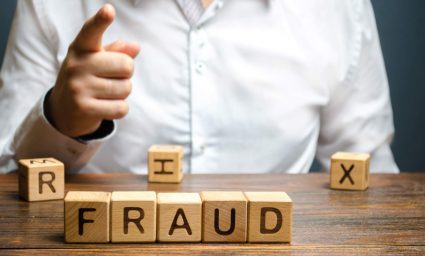 Facing financial hardships can be an incredibly daunting experience, leaving individuals feeling vulnerable and eager for solutions that promise relief. During challenging times, the pressure to manage daily expenses often leads people to consider offers that appear generous or beneficial, even when they should be wary. While we always recommend steering clear of high-interest payday loans and excessive credit borrowing, the importance of vigilance cannot be overstated. Many so-called financial assistance opportunities are cleverly disguised traps set by unscrupulous scammers who aim to exploit your desperation and lack of awareness.
Facing financial hardships can be an incredibly daunting experience, leaving individuals feeling vulnerable and eager for solutions that promise relief. During challenging times, the pressure to manage daily expenses often leads people to consider offers that appear generous or beneficial, even when they should be wary. While we always recommend steering clear of high-interest payday loans and excessive credit borrowing, the importance of vigilance cannot be overstated. Many so-called financial assistance opportunities are cleverly disguised traps set by unscrupulous scammers who aim to exploit your desperation and lack of awareness.
Currently, numerous scams are specifically designed to prey on individuals' financial vulnerabilities, making it essential to remain alert and informed. A critical guideline in identifying scams is simple: if an offer sounds too good to be true, it likely is. In this in-depth guide, we will explore various scams that target individuals facing financial challenges, providing you with the knowledge necessary to differentiate between authentic opportunities and deceptive schemes. By equipping yourself with this information, you can protect your financial well-being and avoid falling victim to these predatory tactics.
Understand Your Rights: Safeguarding Your Tax Refund Claims
There are legitimate channels through which you can claim tax refunds for various expenses, such as work-related tools, uniforms, and mileage. However, these processes require you to work with a tax rebate service company, which means granting them access to your tax records. It’s crucial to recognize that no governmental body, including HMRC, can accurately assess your entitled refund without your active involvement or consultation with a qualified accountant. Therefore, you must be cautious when you encounter unsolicited messages claiming that “HMRC has a tax refund of £261 waiting for you.” These messages often present realistic figures, skillfully avoiding the outrageous claims typical of other scams, such as the infamous Nigerian Prince schemes. Such communications can lead you to websites where you could unknowingly share sensitive information, resulting in identity theft or significant financial loss.
To verify whether such communication is genuine or a scam, it is essential to scrutinize the sender's details carefully. If you receive a text message, check the originating phone number for legitimacy. It’s advisable to refrain from responding to such messages and consider reaching out to HMRC directly for confirmation. Keep in mind that HMRC typically communicates via letters or emails to your registered address, rather than through unsolicited text messages. Additionally, you now have the capability to access your own online tax account, allowing you to view notifications directly from HMRC. If you receive an email, meticulously examine the sender’s address; it should originate from an official HMRC domain. Always avoid clicking on any links provided in suspicious messages to protect your personal information.
Stay Alert: Recognizing and Avoiding the National Insurance Number Scam
Recent reports, including those from the Daily Express, have highlighted the alarming prevalence of the National Insurance scam, which primarily operates through phone calls. This method differs from many others, as scammers may contact you on either your landline or mobile device. The scam usually begins with a panic-inducing message stating that your national insurance number has been compromised. This alarming tactic is designed to create a sense of urgency, prompting you to press a button to speak with someone who can supposedly assist you. However, taking this action often results in being charged a premium rate for the call while the scammers collect your personal information.
To determine whether such a call is legitimate or a scam, remember that credible organizations will never request that you press a button to continue the conversation. If you find yourself in doubt, simply hang up and conduct a quick online search for the phone number. A brief investigation can often reveal whether the number is associated with known scams, empowering you to take the necessary steps to protect yourself and your personal information.
Protect Yourself: Effectively Identifying the DPD or UPS Delivery Scam
Another common scam involves receiving unsolicited texts or emails claiming that a parcel is awaiting your action. These messages typically urge you to click on a link to provide personal information, which is a significant warning sign of potential fraud. To safeguard yourself, it is crucial to carefully scrutinize the source of the email. Scammers often utilize distorted or unusual email addresses that do not correspond with legitimate businesses. Additionally, check any recent orders you’ve placed on platforms like Amazon or eBay; these platforms usually provide comprehensive tracking information for your convenience.
It’s also important to note that while carriers like DHL may charge duties on international orders, they will always provide you with specific details regarding your shipment and its origin. If you receive vague messages about package deliveries without having placed prior orders, exercise extreme caution. Staying informed about personal finance scams is vital to protect yourself from falling victim to such schemes. If financial struggles make these scams seem appealing, consider reaching out to us; we may assist you with our debt consolidation loans for bad credit. We are here to help you navigate your financial challenges securely and effectively.
The Article Finance Scams to Watch Out For Was Found On https://limitsofstrategy.com

